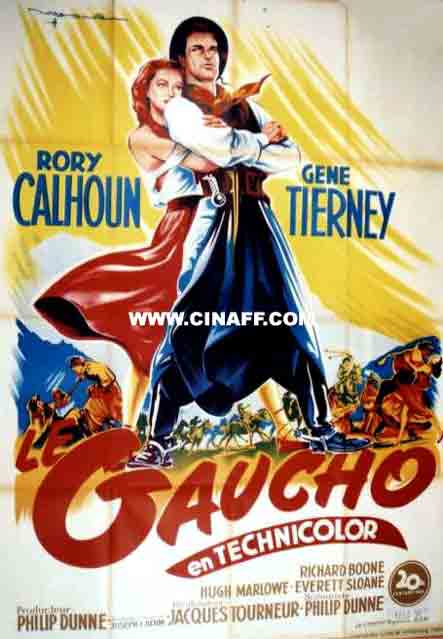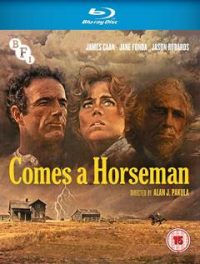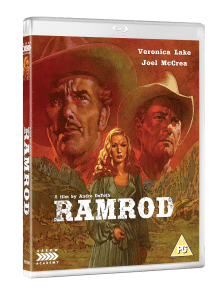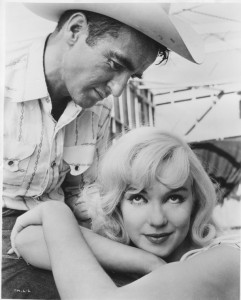Dir: John Ford | US, Western
John Ford is renowned for his US cavalry pictures but not for his American Civil War films. On this issue he only made one feature (The Horse Soldiers) a film segment (The Civil War 1861-65 for How The West Was Won) and a TV episode of Wagon Train (The Colter Craven Story.) Arguably the most visceral, though historically limited, of those three is the tragic How the West Was Won episode.
Ford was vocally passionate and highly knowledgeable about the Civil War. He’d always wanted to adapt a biography of Ulysses C. Grant but it never materialised. So we are left with his sole feature, The Horse Solders – containing an opening scene that briefly includes an appearance by Grant. To this day, The Horse Soldiers is unloved by most critics: Ford’s chief biographer Joseph McBride calls it “mediocre”, critic Scott Eyman considers it “a dud” and in Peter Bogdanovitch’s interview book, Ford himself admits, “I don’t think I ever saw it.”
Over the years my reaction has ranged from good but meandering, then better than I’d recalled, to a flawed and underrated film containing deeply felt moments. The passage of time has proved kinder for this production. Although for me it will never be as compelling as other late Ford (The Man Who Shot Liberty Valance and Seven Women) The Horse Soldiers has considerable pleasures. It’s not the big Civil War picture Ford should have made but a considerable and accomplished gem.
In April 1863 the U.S. cavalry lead by Colonel John Marlow (John Wayne) goes on a 600 mile raid through Mississippi into Louisiana to cut railway lines and attack Confederate troops from Grant’s drive towards Vicksburg. Accompanying him is army doctor, Major Henry Kendall (William Holden) who has to put up with Marlowe’s animosity – he’s distrustful of doctors since his wife died, wrongly diagnosed with a tumour, at their hands. En route they encounter the Southern plantation mistress, Hannah Hunter (Constance Towers). She and her slave Lukey (Althea Gibson) eavesdrop on the officers’ plans to thwart the Confederates and to protect the secrecy of their mission they are taken with them.
No director filmed long lines of men on horseback better than John Ford – place riders on a hill at sunset, singing a ballad or military song, and Ford’s poetry never fails to captivate. His eye for composition was immaculate. There are numerous examples of this in Fort Apache and She Wore a Yellow Ribbon. It was never macho posturing but an affirmation of folkloric and communal values. Ford’s group formations have a painterly depth. The Horse Soldiers has some of the best photographed patterning of men and equestrian power in all of his work. Ford’s viewpoint is the long shot, or medium long shot that impacts so well with his careful framing. And William H. Clothier’s photography gives the troops and scenery a lovely autumnal charge. So much so that there are times when you could almost forget the story and characters of The Horse Soldiers and simply delight in a lyrical mise en scene of cavalry expertise.
But the problem with The Horse Soldiers is its undeveloped screenplay. Too much time is spent on the argumentative feuding between John Wayne and William Holden. This is lively and engaging but overdone, causing the film to often be a series of war episodes intercut between the their incessant personal scrap. Yet if you relax into the rhythm of The Horse Soldiers – which is detached, but not disengaged, then you’ll also discover a sensitive questioning of military and civilian values, the tension of the actual military raid and how war represses feelings of love, shame and regret.
There’s a fine scene where Marlow, in a captured saloon, is talking to Miss Hunter about his wife’s death. It’s so beautifully acted by Wayne – his hurt looking eyes conveying a bitterness and anguish that’s reminiscent of Wayne’s great performance as Ethan Edwards in The Searchers. The attack on the Confederate troops, coming in on a train, contains a haunting shot of an apprehensive officer that echoes the barber scene in My Darling Clementine. And the soldiers’ response to the shocking killing of Lukey has a tenderness exhibiting Ford’s compassionate sense of community. Finally perhaps, and most striking of all, is the bizarre skirmish with the boy cadets from a local military school.
Civil War to one side The Horse soldiers, as a cavalry picture, is never as expressive as She Wore a Yellow Ribbon or as complex as Fort Apache yet it avoids the musical bombast of Rio Grande. It’s a quieter, restrained, but equally angry and concerned film of personal and military conflicts. We may mourn the fact that Ford never gave us a Ulysses C. Grant bio-pic (though with Grant’s early reputation for heavy drinking that could have been over the top) but we do have Ford’s subdued The Horse Soldiers still riding along, slowly growing in stature. ALAN PRICE
NOW AVAILABLE ON BLU-RAY


 Dir: Alan J Pakula | Western | US 118′
Dir: Alan J Pakula | Western | US 118′ Dir: Andre De Toth | | Joel McCrea, Veronica Lake, Don Defore Western | US | 94′
Dir: Andre De Toth | | Joel McCrea, Veronica Lake, Don Defore Western | US | 94′ Dir.: John Huston; Cast: Marilyn Monroe, Clark Gable, Montgomery Clift, Eli Wallach, Thelma Ritter; USA 1960, 120 min.
Dir.: John Huston; Cast: Marilyn Monroe, Clark Gable, Montgomery Clift, Eli Wallach, Thelma Ritter; USA 1960, 120 min.